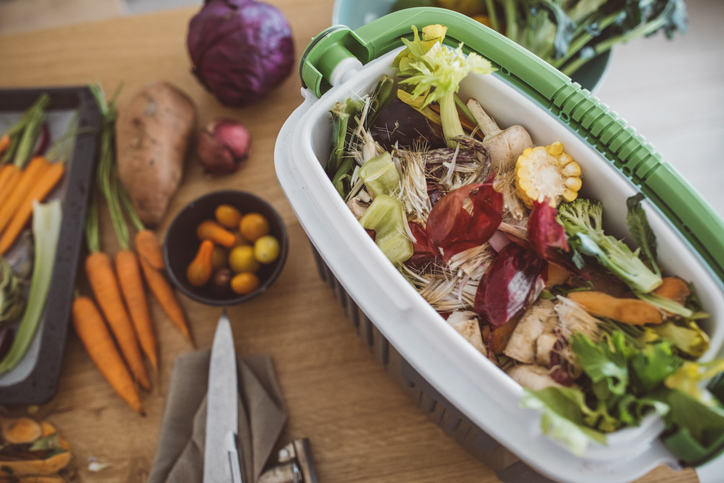Wednesday, January 08, 2020
By John Voket If you're strapped for time or don't have a green thumb, at least you can help protect the environment and improve the health of your landscape by committing to composting. The Natural Resources Defense Council's Darby Hoover says there are loads of reasons for keeping food scraps and other household waste out of the trash can. She says compost adds nutrients and organic matter back to the soil, which benefits agriculture, reduces reliance on synthetic fertilizers, diverts methane-producing organic materials from landfills, and improves soil's water retention capacity.
If you're strapped for time or don't have a green thumb, at least you can help protect the environment and improve the health of your landscape by committing to composting. The Natural Resources Defense Council's Darby Hoover says there are loads of reasons for keeping food scraps and other household waste out of the trash can. She says compost adds nutrients and organic matter back to the soil, which benefits agriculture, reduces reliance on synthetic fertilizers, diverts methane-producing organic materials from landfills, and improves soil's water retention capacity.The federal EPA says composting requires just three basic ingredients:
- Browns: Dead leaves, branches and twigs
- Greens: Grass clippings, vegetable waste, fruit scraps and coffee grounds
- Water: Having the right amount of water, greens and browns is important for compost development.
The agency says your compost pile should have an equal amount of browns to greens. The brown materials provide carbon for your compost, the green materials provide nitrogen and the water provides moisture to help break down the organic matter.
If you're ready to dig into backyard composting, the EPA suggests following these steps:
- Select a dry, shady spot near a water source for your compost pile or bin.
- Add brown and green materials, making sure larger pieces are chopped or shredded.
- Moisten dry materials as they are added.
- Once your compost pile is established, mix grass clippings and green waste into the pile and bury fruit and vegetable waste under 10 inches of compost material.
The "teachable trash team" at Glad.com says just like mulch you buy at a gardening store, homemade compost can also suppress weeds and fertilize soil.
Sprinkling compost on your lawn provides nutrients to the soil, making it healthier and better equipped to hold water. Repeat this process a few times a year for a greener, thicker lawn without using additional fertilizers.
Finally, Glad.com says although compost can work as a soil substitute, the best way to maximize its benefits is by mixing it in with existing soil, making it much more nutrient-rich.
RISMedia welcomes your questions and comments. Send your e-mail to: realestatemagazinefeedback@rismedia.com

